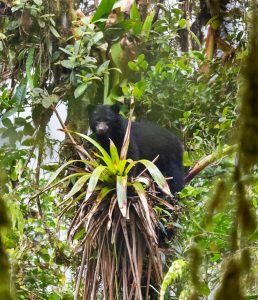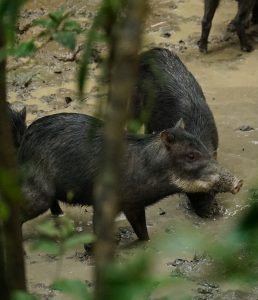In response to the global pandemic, the University of Wisconsin and Ceiba have suspended the field portion of the Tropical Conservation Semester, and recalled students back to their homes. While Ecuador has seen relatively few cases of COVID-19, it is clear that the virus will continue to spread around the world, and that everyone should limit their contact with others. With that in mind, it became clear that our students must return to their home states, no matter how devastating it is to contemplate the abrupt end of a terrific couple of months in Ecuador.
The program will continue, but we will shift all academic content to an online format. Students will still interact with one another, albeit remotely, they still will receive credit for the remaining courses, and they will continue to learn about tropical ecology and conservation from Ceiba professors. Major field trips like the voyage to the Galapagos Islands have been postponed until 2021, when we hope that all current participants can return to Ecuador and enjoy a week among Darwin’s famous isles.


But we do want to take a moment to remember some of the good times we’ve all enjoyed in mountains, forests, and beaches of Ecuador. After getting blasted by cold wind and rain in the high Andes, we were rewarded with once-in-a-lifetime views of Spectacled Bears at the El Pahuma Orchid Reserve. The whole class pitched in to assist Ceiba’s ongoing reforestation efforts, planting dozens of native trees in a coastal property that forms part of the Coastal Conservation Corridor. A few hours of serious sunburn wasn’t enough to deter everyone from cavorting in the balmy Pacific and singing songs on the sands under the stars. And we were fortunate to have experienced two full weeks in the rainforest at the Tiputini Biodiversity Station, the most biodiverse place on planet Earth. From the first day, wildlife was everywhere: pink river dolphins greeted our arrival, frogs whooped at us by night, parrots squawked by day, the trees shook and crashed as troops of monkeys swung by, and the understory trembled when a herd of white-lipped peccaries thundered past. Everybody left the Amazon with lifelong memories, a head full of plant and animal names, and a newfound respect for conducting research in a tropical lowland forest.
For now, we bid adieu to the rainforest, the Andes, and the cloud forest. But for the students it’s not so much adios as it is hasta luego, they’ll be back, I’m sure of it.